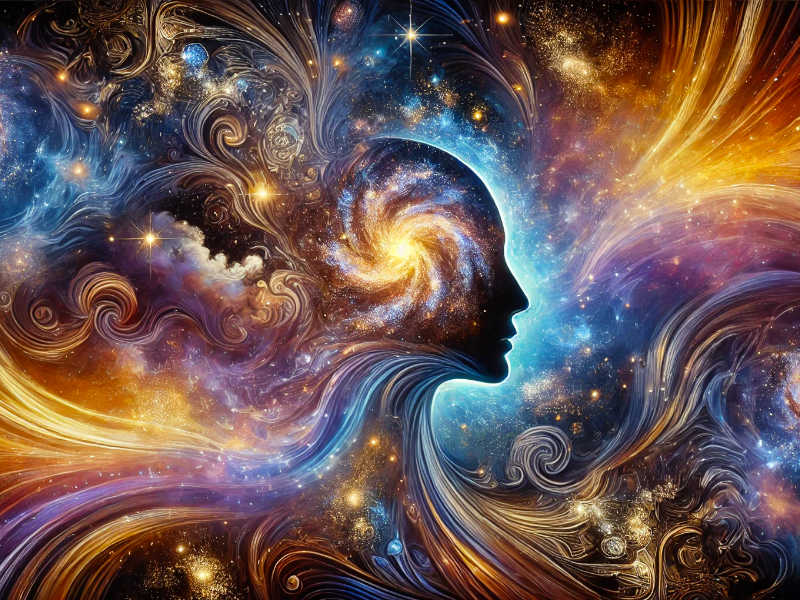
Is Reality Stranger Than Fiction? Exploring Consciousness, Perception, AI & More
In an enlightening conversation with André Duqum, Annaka Harris delves into the profound mysteries of consciousness, perception, free will, AI, and love.
Harris, a renowned author and voice in the fields of neuroscience, meditation, and the philosophy of mind, brings forth ideas that challenge our conventional understanding of reality.
This article synthesizes the key concepts discussed in this interview, offering an inspiring, informative, and thought-provoking exploration of these deep topics.
You’re Not Meant to Walk Alone
Join conscious seekers and illuminate your true self. Unlock higher awareness, spiritual growth, and whole-person well-being.
Join the Wholebeing Newsletter Today!
By signing up, you agree to receive our well-being emails, special offers, and agree to the Privacy Policy. You can unsubscribe anytime.
Defining Consciousness
To set the stage, Harris begins by defining consciousness in its most fundamental form, which she refers to as “felt experience.”
This encompasses the basic sensations and awareness that organisms, even those with minimal neural complexity, might experience.
For instance, a worm might have a basic sense of pressure or hunger, but it lacks the complex self-awareness characteristic of human consciousness.
This foundational understanding challenges the assumption that only complex brains can house conscious experiences, urging us to rethink what it means to be conscious.
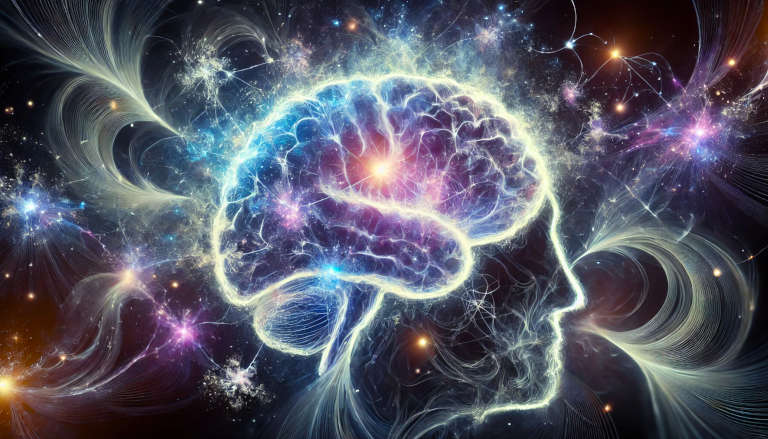
The Hard Problem of Consciousness
One of the central themes of the discussion is the “hard problem of consciousness,” a term coined by philosopher David Chalmers.
This issue explores how and why subjective experiences arise from physical processes in the brain.
While neuroscience has made strides in correlating brain states with conscious experiences, it struggles to explain why these processes are accompanied by a felt experience.
This mystery remains one of the most perplexing issues in both philosophy and science, and Harris’s exploration highlights the depth of this enigma, encouraging us to consider new paradigms.
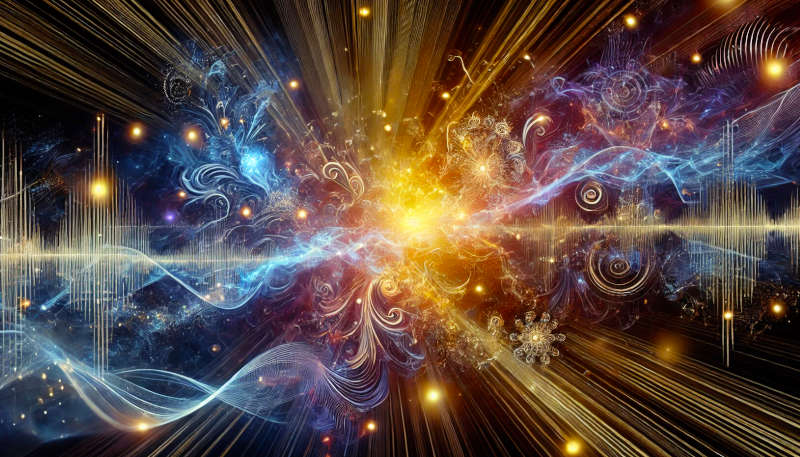
Perception & Reality
Harris and Duqum explore the ways in which our perception shapes our reality, emphasizing that our brains create a coherent experience of the world by integrating various sensory inputs.
This process, known as “binding,” takes place before we become consciously aware of our experiences.
For example, when playing tennis, the sound, sight, and feel of the ball hitting the racket are all processed separately and then unified into a single conscious moment.
This delay in processing suggests that we live slightly in the past, as our brains take time to compile these inputs into a cohesive experience.
The implications of this understanding extend beyond simple perception, challenging us to reconsider the reliability and immediacy of our sensory experiences.
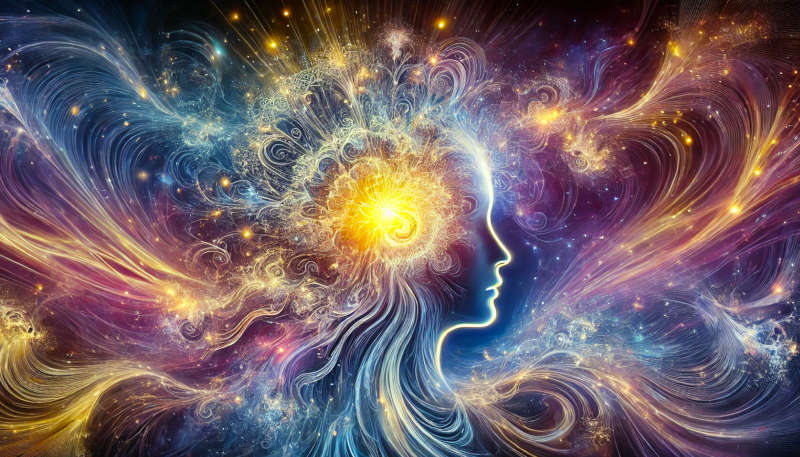
Free Will: An Illusion?
Exploring further, the conversation moves into the realm of free will, questioning whether our sense of making choices independently is an illusion.
Harris argues that what we perceive as free will is, in reality, the result of unconscious processes that occur before we are aware of them.
Experiments have shown that our brains make decisions milliseconds before we consciously register them.
This insight aligns with the idea that our sense of self is a construct, and the notion of a “freely willing” self may be a comforting but inaccurate representation of how our minds operate.
This perspective can be unsettling, yet it opens up new ways of understanding human behavior and decision-making, emphasizing the complex interplay between our conscious and unconscious minds.
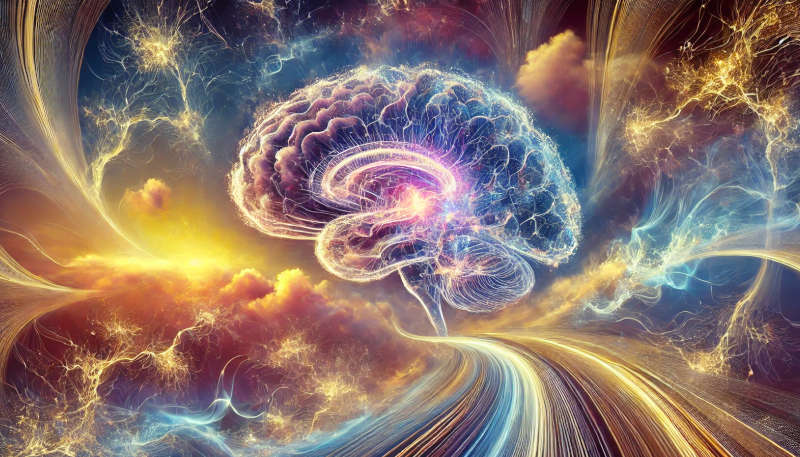
Consciousness Beyond the Human Brain
Harris raises the intriguing possibility that consciousness is not limited to organisms with brains.
This idea, often associated with panpsychism, suggests that consciousness could be a fundamental aspect of the universe, present in all forms of matter to varying degrees.
For instance, a rock or a tree might possess a rudimentary form of awareness, vastly different from human experience yet still significant.
This perspective challenges the anthropocentric view of consciousness and opens up new avenues for understanding the nature of experience across different life forms and even in artificial intelligence.
It invites us to consider a more inclusive and interconnected view of consciousness, where all forms of matter contribute to the tapestry of sentient experience.
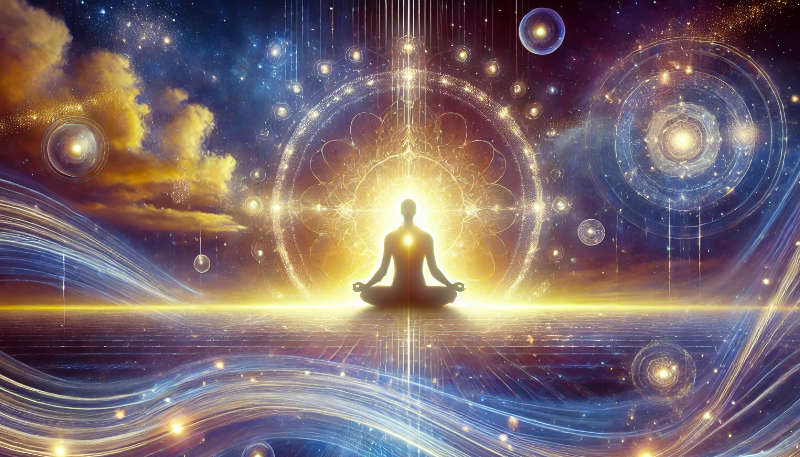
Meditation & Self-Realization
Drawing from her own experiences with meditation, Harris describes how practices like walking meditation can lead to profound insights about the nature of the self.
She recounts moments of realization where the sense of a separate, solid self dissolves, revealing a deeper interconnectedness with the universe.
These experiences suggest that our typical sense of self is an illusion, a narrative constructed by our brains to make sense of our experiences.
This dissolution of self can lead to a greater sense of peace and unity, as we begin to see ourselves as part of a larger, interconnected whole.
Meditation thus becomes a powerful tool for not only personal growth but also for understanding the fundamental nature of consciousness.
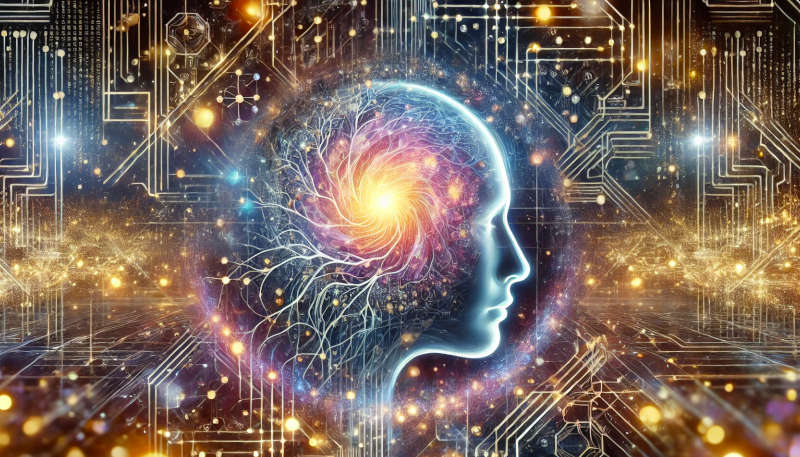
AI & the Future of Consciousness
The discussion also touches on the implications of artificial intelligence for our understanding of consciousness.
As AI systems become more sophisticated, they may exhibit behaviors that resemble conscious experiences.
However, without the ability to directly access another being’s internal experience, we cannot conclusively determine whether AI systems are truly conscious.
This uncertainty mirrors the broader challenge of studying consciousness from an external perspective.
Harris emphasizes that our future interactions with AI will force us to confront these questions more directly, potentially reshaping our understanding of consciousness and its manifestations.

Love & Interconnectedness
Finally, Harris and Duqum explore the theme of love, emphasizing its role in revealing the interconnected nature of all things.
Love, in its various forms, can be seen as a manifestation of our deep connection to others and the world around us.
By recognizing the illusory nature of the self and embracing the interconnectedness of all life, we can cultivate a more compassionate and holistic understanding of our place in the universe.
Love becomes a pathway to experiencing the unity that underlies our diverse experiences, reminding us of the fundamental connections that bind us all.

I hope my content sparks something deeper within: a moment of clarity, a gentle shift, or a deeply felt truth. Creating meaningful content takes time and heart. If you found value here, consider supporting my work to keep this space alive.
Vlad
Final Reflections
Annaka Harris’s insights into consciousness, perception, free will, AI, and love invite us to rethink our assumptions about reality.
By challenging the notion of a separate self and exploring the fundamental nature of consciousness, we can open our minds to new possibilities and deepen our understanding of what it means to be alive.
This conversation serves as a reminder that reality is indeed stranger than we think, and that by embracing the mysteries of existence, we can find greater meaning and connection in our lives.
Watch André Duqum & Annaka Harris’ Discussion
Share the Love, Spread the Wisdom
You May Also Like:




